Want to sell Shopify store, but don’t know how?
No worries. We’re here to help you!
Selling an established Shopify store has become an intriguing opportunity for entrepreneurs looking to move on to new ventures or those seeking a profitable exit strategy. The e-commerce landscape is dynamic, so owning and operating a Shopify store has grown in popularity over the years.
In this article, we will go through the details of selling a Shopify store, exploring the feasibility, challenges, and potential rewards of such a business transaction. Whether you’re a seasoned e-commerce expert or just starting your journey, understanding how to sell a Shopify store can be a valuable asset in your entrepreneurial arsenal.
Can I sell the Shopify store?
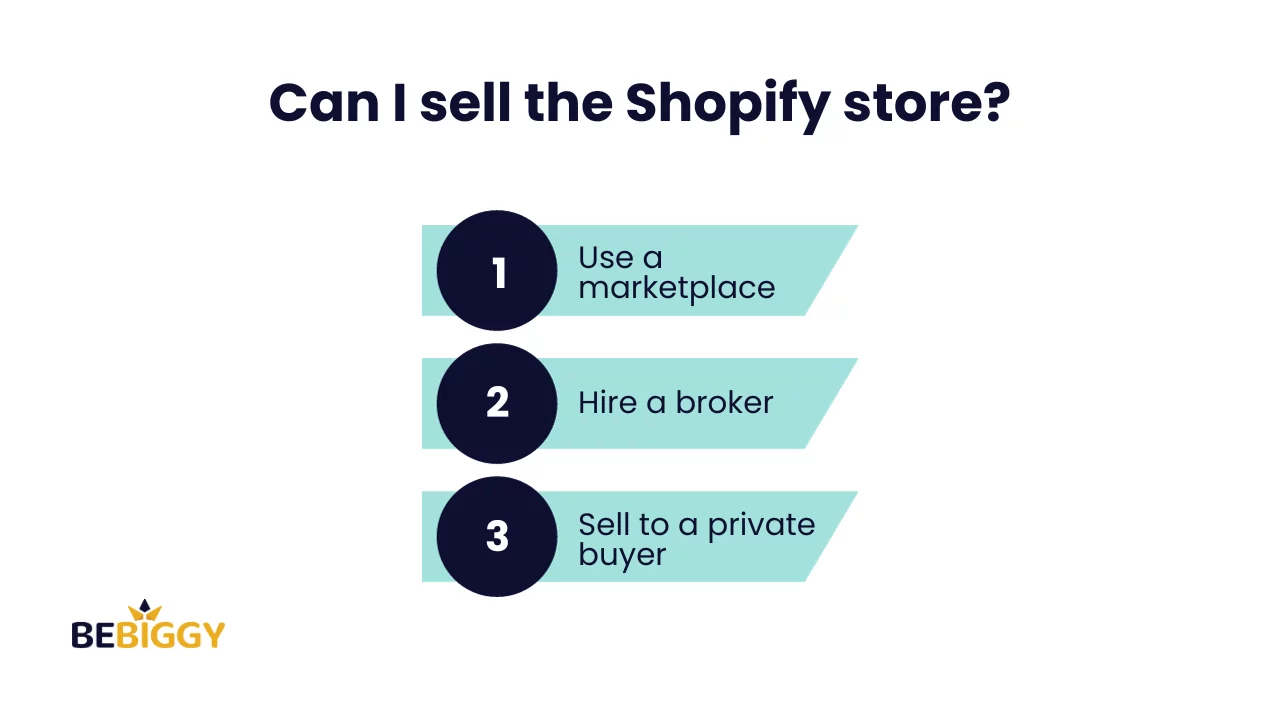
Yes, it is possible to sell your Shopify store. There are several ways to do this, including:
- Use a marketplace: You can sell your Shopify store in many marketplaces, such as Flippa and Exchange Marketplace. These marketplaces allow you to list your store for sale and connect with potential buyers.
- Hire a broker: You can hire a broker to help sell your Shopify store. A broker can help you to value your store, market it to potential buyers, and negotiate a sale.
- Sell to a private buyer: You can also sell your Shopify store to a private buyer. It can be a good option if you know someone interested in buying your store.
Here are some tips for selling your Shopify store:
- Make sure your store is in good shape. Before you sell your store, it is important to ensure it is in good shape. Your store should have a good selection of products, a high-quality website, and a good sales track record.
- Set a realistic price. You have to set a realistic price for your store. If you set the price too high, you will scare away potential buyers. If you set the price too low, you will leave money on the table.
- Market your store. Once you have set a price for your store, you need to market it to potential buyers. You can do this by listing your store on marketplaces, hiring a broker, or marketing your store through your network.
- Be prepared to negotiate. You must be prepared to negotiate once you have found a potential buyer. It includes negotiating the price of the sale, the terms of the sale, and the transition of ownership.
Is It Time to Sell Your Shopify Store?
There are several factors to consider when deciding whether or not it is time to sell your Shopify store. Some of the most important factors include:
Evaluating Your Motivation
Before you decide to sell your Shopify store, it is important to evaluate your motivation. Why are you considering selling? Are you looking to retire? Start a new business? Or simply move on to other things?
Understanding why you want to sell your Shopify store is a crucial step. Let’s delve into some motivating factors:
- Starting a New Business: Many entrepreneurs consider selling their existing business to fund a new venture, providing a financial jumpstart for their next big idea.
- Spending More Time with Family: Desire for work-life balance often drives business owners to sell, allowing them to spend more quality time with their families.
- Dealing with Health Issues: Health concerns can change your priorities, making selling an option to ensure flexibility in your business plans.
- Pursuing Personal Interests: Exploring personal interests, whether traveling or hobbies, is a common motivation for selling.
Understanding Your Buyer’s Goals
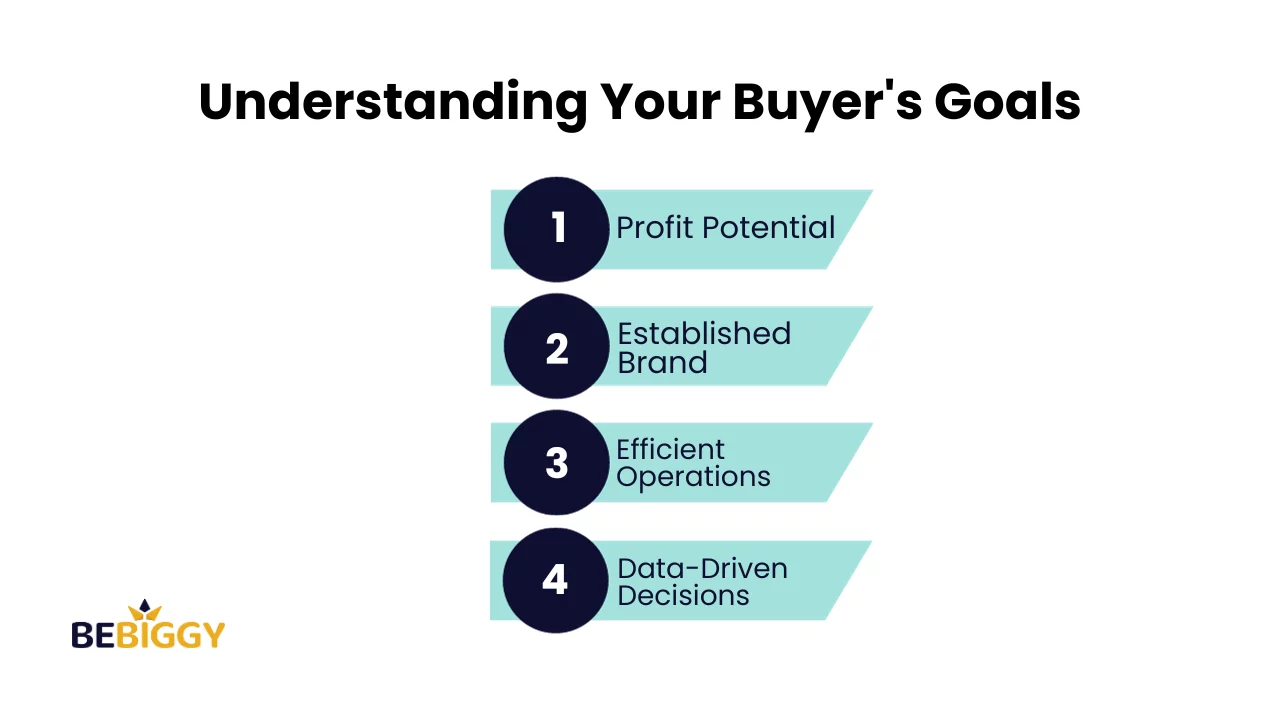
It’s vital to grasp what potential buyers are looking for to maximize your chances of a successful sale:
- Profit Potential: Buyers are typically interested in businesses with growth potential. A well-documented profit potential can attract buyers.
- Established Brand: Businesses with a recognized brand identity often achieve higher valuations, as brand recognition appeals to buyers.
- Efficient Operations: Efficiency matters. Buyers look for businesses with streamlined operations, which can positively impact the final sale price.
- Due Diligence and Data-Driven Decisions: Businesses with transparent and well-documented operations are likelier to close a sale successfully. Buyers rely heavily on data and due diligence to make informed decisions.
The Emotional Aspect of Selling
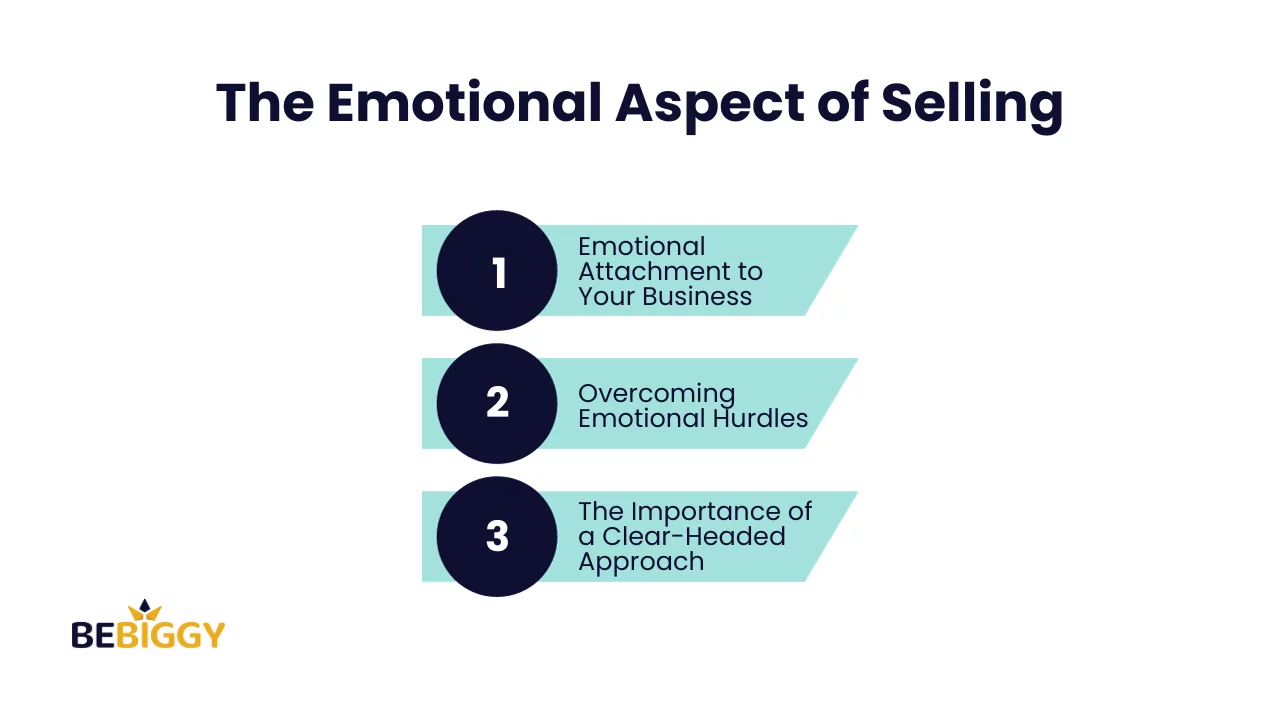
Selling your Shopify store can be an emotional experience. After all, you have put a lot of time, effort, and money into building your business. It is important to be prepared for this and to take care of yourself during the sales process.
Emotions play an important role in the decision to sell your business. Here’s what you should consider:
- Emotional Attachment to Your Business: Many business owners have a strong emotional connection to their ventures, making selling challenging but often a part of the entrepreneurial journey.
- Overcoming Emotional Hurdles: While emotions can be a hurdle, many entrepreneurs have successfully navigated them to complete sales. Professional guidance and data analysis can help make sound decisions while managing emotions.
- The Importance of a Clear-Headed Approach: Understanding the emotional aspects of selling is crucial. Maintaining a clear-headed approach is important, balancing emotional attachment with sound business decisions.
These insights provide a holistic view of the decision-making process when selling your Shopify store. Assess your motivations, align with potential buyers’ goals, and manage the emotional aspect to ensure a successful and rewarding sale.
Timing Matters: When to Sell Your Shopify Store
When considering when to sell your Shopify store, timing is a crucial factor to keep in mind:
- E-commerce Growth Trends: The e-commerce sector has shown consistent growth over the years, which can influence the decision to sell. Understanding these trends can help determine the right time to capitalize on market dynamics.
- Market Demand: Keeping an eye on market demand can be beneficial. Certain niches or industries might experience higher demand during specific periods, influencing your decision.
- Economic Factors: Broader economic factors can affect the valuation of your business. It’s wise to consider macroeconomic conditions when deciding to sell.
Beyond Seasonal Peaks: A Holistic Approach
Looking beyond seasonal peaks is essential when evaluating the timing of your sales:
- Data-Driven Valuation: Savvy buyers rely on data-driven valuation methods that consider your business’s overall health and profitability throughout the year. It’s not just about seasonal spikes but about consistent performance.
- Relevance of Historical Data: Historical data, such as sales trends and profitability over the years, is pivotal in determining the right time to sell. A strong historical track record can be a valuable asset.
- Opportunity for Growth: Assess your business’s potential for future growth beyond seasonal variations. Buyers often consider long-term growth prospects, not just immediate profitability.
Avoiding the Opportunity Cost
Recognizing the opportunity cost of waiting for the “perfect” time to sell is crucial:
- Time Investment: Selling your Shopify store can be time-consuming, lasting anywhere from a few months to a year. Waiting for the ideal moment may lead to missed opportunities elsewhere.
- Pursuing New Ventures: Delaying the sale may prevent you from pursuing new business ventures or personal interests that you’re passionate about.
- Market Dynamics: The e-commerce market is dynamic and ever-changing. Waiting for the perfect time could mean missing out on potential opportunities.
How Long Does It Really Take To Sell a Shopify Store?
The amount of time it takes to sell a Shopify store can depend on several factors. The following are some of them:
- The quality and profitability of the store
- The asking price
- The current market conditions
- The marketing and sales efforts of the seller
In general, selling a Shopify store can take a few weeks to a few months. However, it is important to note that there is no guarantee of how long it will take to sell your store.
How can I determine the value of my Shopify store?
Valuation Methods: DCF, EBITDA, and More
There are several ways to determine the value of your Shopify store. Some of the most common valuation methods include:
- Discounted cash flow (DCF) analysis: DCF analysis is a method of valuing a business by estimating the present value of its future cash flows.
- Earnings (EBITDA) before interest, taxes, depreciation, and amortization: After subtracting interest, taxes, depreciation, and amortization from earnings, EBITDA is used to calculate a company’s profitability.
- Earnings multiplier method: The earnings multiplier method values a business by multiplying its earnings by a multiple. The multiple is typically based on the multiples of similar recently sold businesses.
- Seller’s Discretionary Earnings (SDE): SDE is better suited for small to medium-sized stores valued at less than $10 million. It can calculate business valuation by multiplying your annual net profit by the years your business has generated net profit.
Key Factors That Influence Valuation

The following are some key factors that can influence the valuation of a Shopify store.
- Revenue and Profitability: The store’s financial performance is the most significant factor. This includes metrics’ annual revenue, net profit, and growth trends.
- Traffic and Customer Base: The volume of web traffic and the quality of the customer base matter. Stores with consistent and organic traffic and a loyal customer following are often valued higher.
- business model: The specific business model also plays a role. Subscription-based models or recurring revenue streams have higher valuations due to income predictability.
- Brand and Reputation: An established brand with a strong reputation commands a premium. Brands with a loyal customer base and positive online reviews attract buyers.
- Operational Efficiency: The efficiency of your operations, including supply chain management, inventory turnover, and marketing costs, influences valuation. Efficient operations often mean higher profitability.
- Niche and Industry Trends: The niche or industry your store operates in and its current trends can affect valuation. Some niches might be in high demand and thus more valuable.
- Assets and Inventory: The value of physical assets, such as inventory or equipment, also contributes to the overall valuation. Stores with valuable assets may be worth more.
- Market Demand: The demand for online businesses in the market at the time of sale can impact valuation. High demand can lead to higher valuations.
- Growth Potential: Buyers often look at the potential for future growth. A store with untapped potential for expansion, new product lines, or entering new markets can have a higher valuation.
- Historical Data: Historical data, such as sales trends over several years, can help demonstrate the store’s consistency and performance. Positive historical data can increase the store’s value.
Where can I find a marketplace to sell my Shopify store?

You can list your Shopify store for sale in several marketplaces and platforms. Here are some options for selling your Shopify store:
1. Flippa: A well-known platform for purchasing and selling internet businesses is Flippa. It has a sizable audience and offers a broad range of businesses—including Shopify stores—for sale.
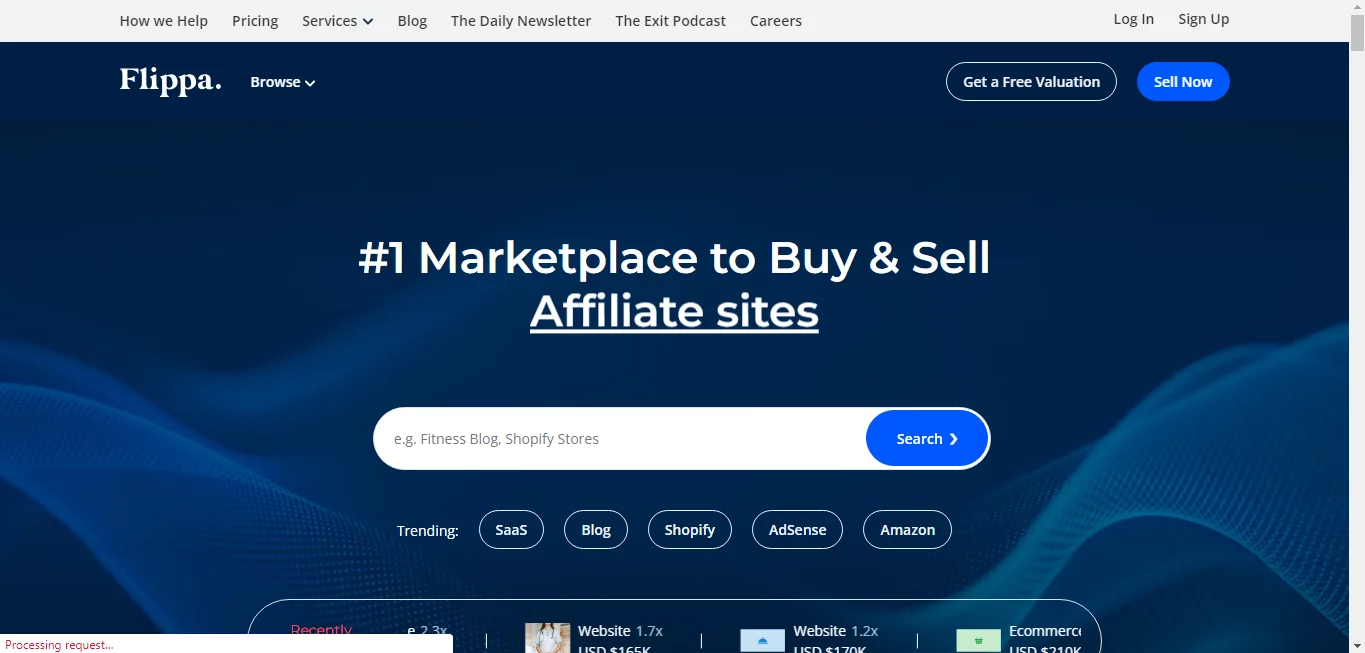
2. Empire Flippers: Empire Flippers is a vetted marketplace for buying and selling online businesses. It has a team of experts who review each business before it is listed for sale.
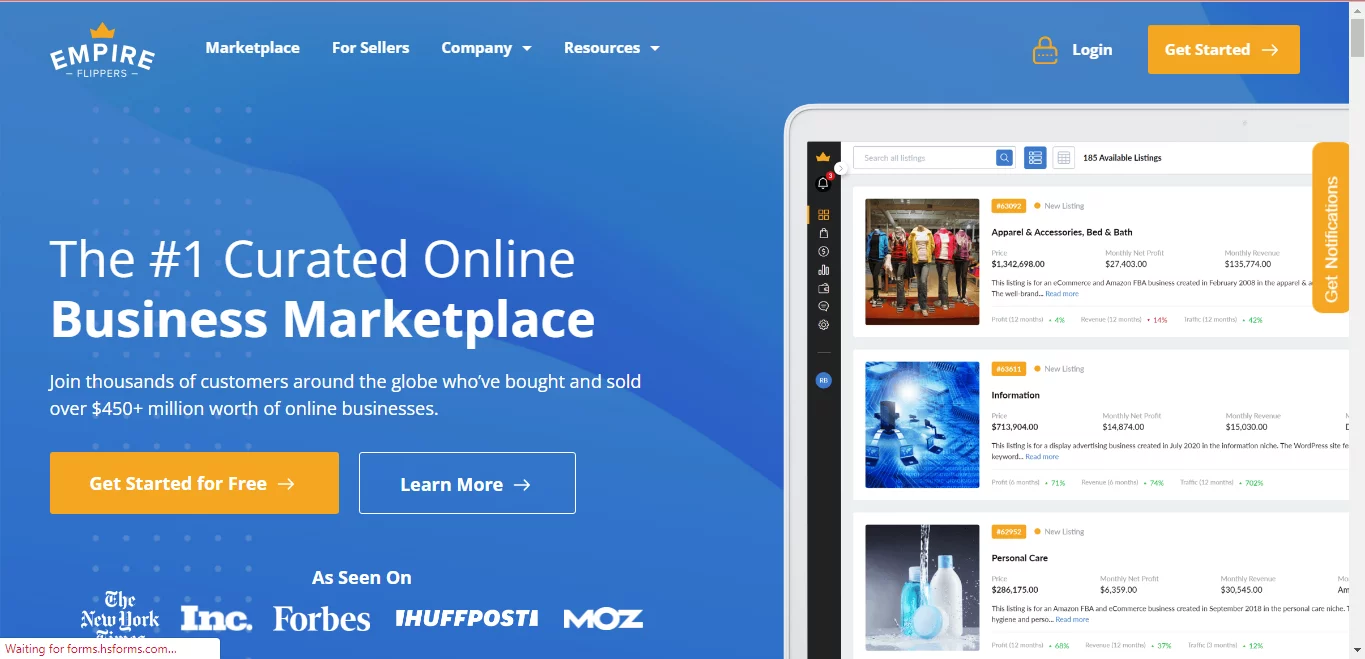
3. ACQUIRE.COM: ACQUIRE.COM is a marketplace for buying and selling small businesses, including Shopify stores. It has a focus on businesses that are generating about $13.9M in annual revenue.
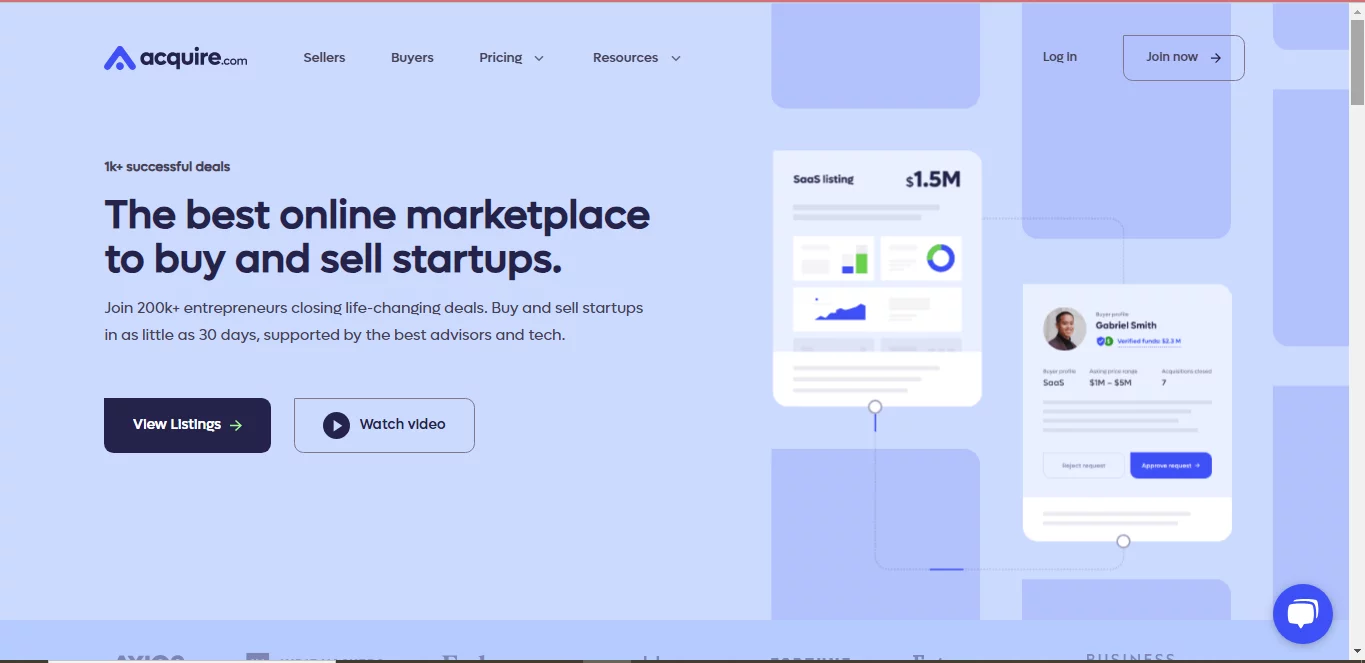
4. FE International: FE International is a global marketplace for buying and selling online businesses. It has a team of experts who help buyers and sellers to complete transactions.

5. BizBroker24: BizBroker24 is a marketplace for buying and selling online businesses. It has a focus on businesses that are generating about $6.5 Million in annual revenue.
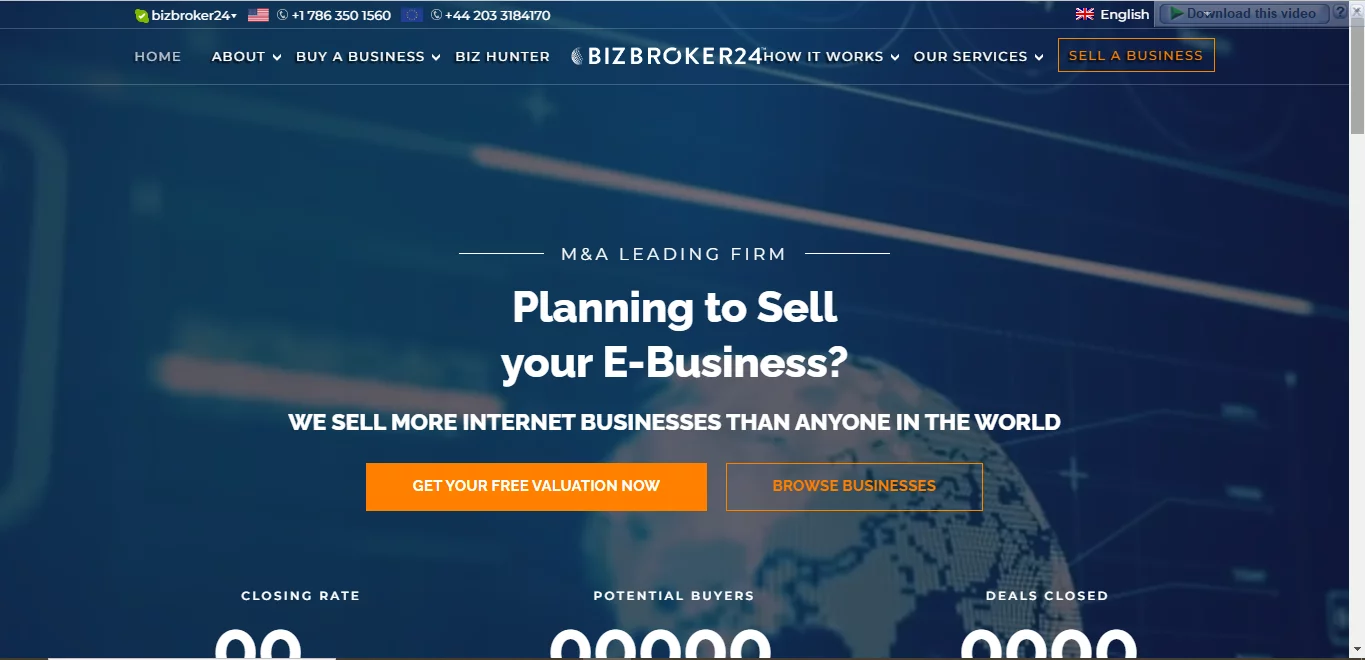
6. Latona’s: Latona’s is a marketplace for buying and selling online businesses. It has a focus on businesses that are generating about $28 Million in annual revenue.
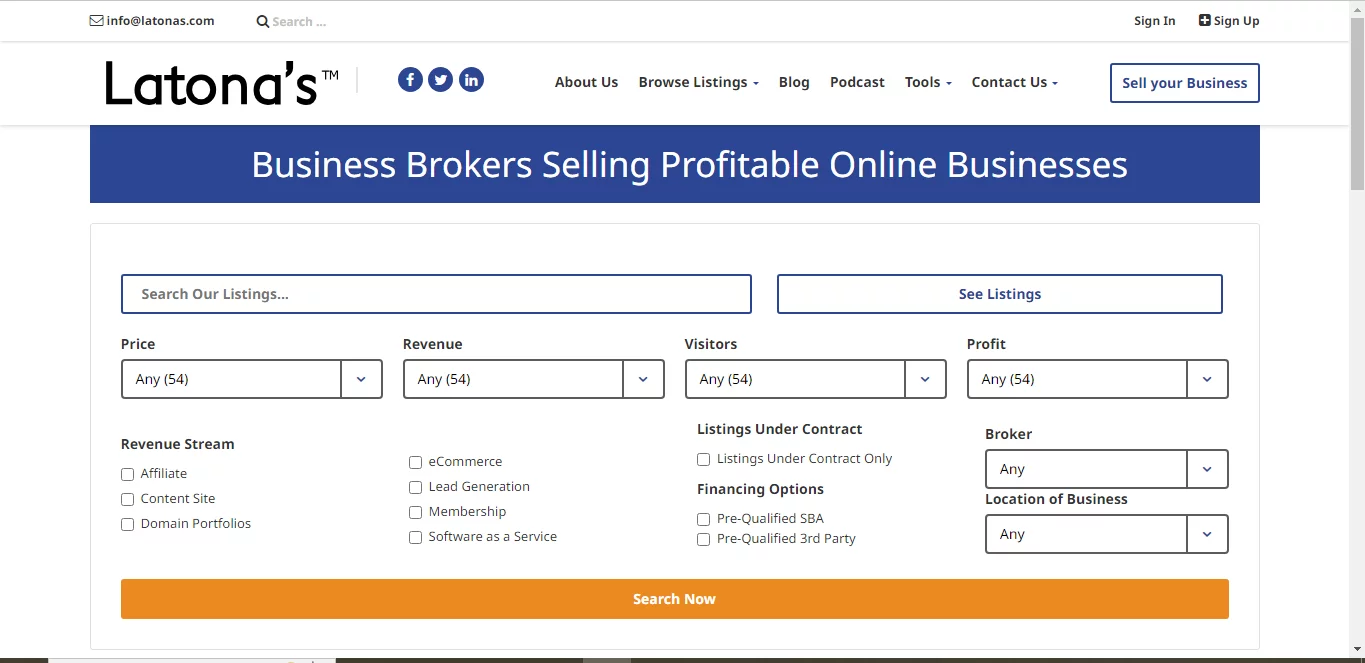
7. Quiet Light Brokerage: Quiet Light Brokerage is a boutique marketplace for buying and selling online businesses. It concentrates on companies with annual revenue of greater than $5 million.
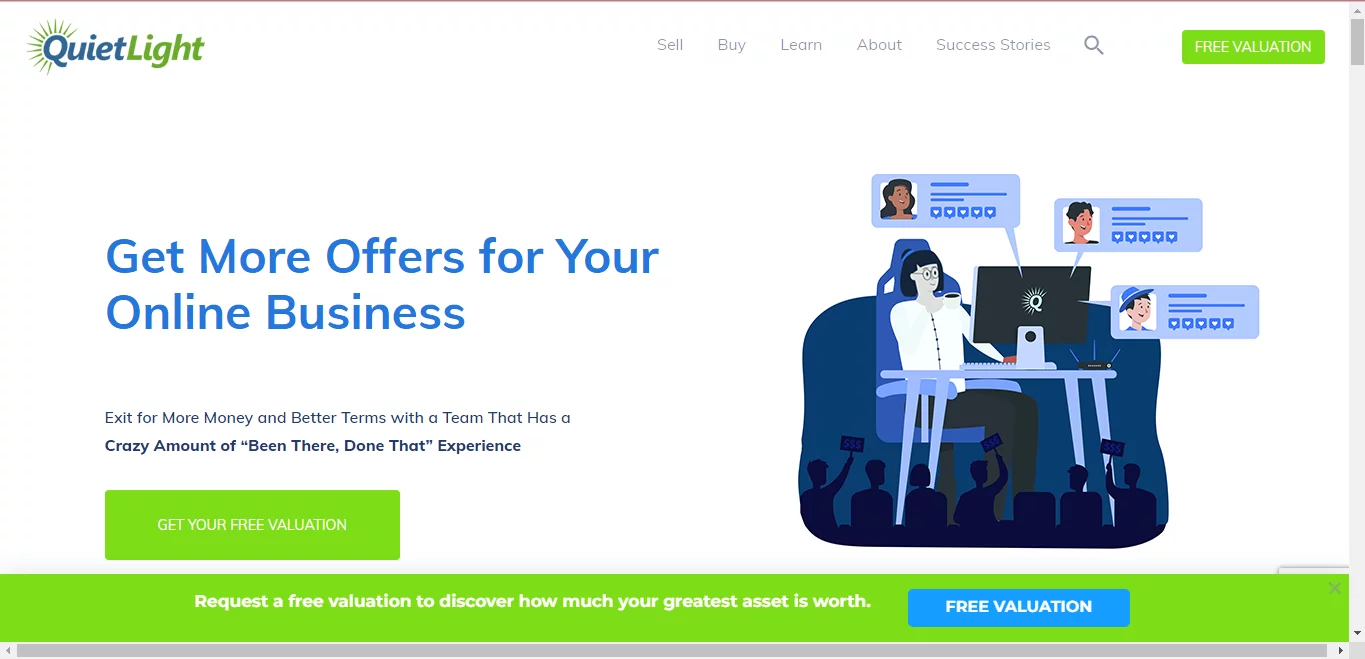
When choosing a marketplace to sell your Shopify store, it is important to consider the following factors:
- Fees: Different marketplaces charge different fees for listing and selling businesses. Be sure to compare the fees before you choose a marketplace.
- User base: The size of the marketplace’s user base is important. A larger user base means there are more potential buyers for your store.
- Reputation: The marketplace’s reputation is also important. Choose a marketplace that has a good reputation and that is known for its fair and transparent business practices.
You can make a listing for your Shopify store after deciding on a marketplace. Provide comprehensive details about your store, including its revenue, profitability, and room for expansion. Include top-notch images and videos of your store as well.
You can begin promoting your store to possible customers as soon as you have generated a listing for it. This can be achieved through email marketing, internet forums, and social media promotion of your listing.
Although selling your Shopify store can be challenging, it can also be quite fulfilling. It is possible to raise the likelihood of a successful sale by selecting the appropriate marketplace and doing good retail promotion.
How do you prepare to sell your Shopify store?
Here are some tips on how to prepare to sell your Shopify store:
- Organize your financial data. This includes your sales, profits, expenses, and traffic data. You will need this information to value your store and to negotiate with potential buyers.
- Clean up your store. This means ensuring that your product listings are accurate and up-to-date, that your website is easy to navigate, and that your customer service is excellent.
- Optimize your store for SEO. This will help potential buyers to find your store when they search for Shopify stores online.
- Create a sales pitch. This brief document highlights your store’s strengths and why it is a good investment.
- Market your store. Once you are ready to sell, you must market your store to potential buyers. You can do this by listing your store on marketplaces, hiring a broker, or marketing your store through your network.
Here are some additional tips to help you prepare to sell your Shopify store:
- Get a valuation. This will help you to set a realistic asking price for your store.
- Identify your target buyer. Who are you most likely to sell your store to? Once you know your target buyer, you can tailor your marketing efforts accordingly.
- Be prepared to negotiate. Buyers will likely try to negotiate the price of your store. Get ready to negotiate and be willing to compromise.
- Have a transition plan in place. This will help to ensure that your store’s sale goes smoothly and that the buyer can take over the business without any problems.
FAQs about sell Shopify Store

Can a Shopify store be sold?
Yes, Shopify stores can be sold. It involves understanding the value of your store, preparing for the sale, and using platforms like Flippa or broker services to facilitate the transaction.
How do I sell my Shopify store?
To sell your Shopify store, you can list it on online exchange marketplaces like Flippa. These platforms help you reach potential buyers, negotiate the sale, and complete the transfer of ownership quickly and efficiently.
How much can I sell a Shopify store for?
The selling price of a Shopify store varies based on factors like profitability and revenue. Stores earning at least $3,500 in monthly net profit over a 12-month average have the potential to be sold for six figures.
Is selling Shopify stores profitable?
Since 81% of businesses on Shopify report profitability after two years, selling a Shopify store can be financially rewarding. A Shopify store makes about $155,000 a year on average.
Is Shopify free to sell?
Shopify does not offer a free plan, but a Starter plan is available for $5 monthly. It’s suitable for selling products through various social media and email channels.
Is Shopify a successful business?
Shopify is among the best e-commerce website builders, scoring highly in recent research. It’s a versatile platform suitable for businesses of all sizes and does not require technical expertise to get started.
Is Shopify still a good idea?
Shopify remains a strong choice for e-commerce businesses. It’s an all-in-one platform accommodating businesses of all sizes, and its user-friendly features make it accessible to those with or without technical experience.
How long do Shopify stores last?
Statistically, around 70-80% of new Shopify stores close within a week, and only about 5% survive a year or more. The lifespan of a Shopify store depends on various factors, including business strategy and market conditions.
Can you start a Shopify store for free?
Shopify does not offer a free plan, but it does provide a free trial period. To run a fully functional store, you’ll need to subscribe to a paid Shopify plan, with the basic plan starting at $29 per month.
Where is the ideal place to acquire a top-quality pre-built store?
The best source to purchase a pre-built Shopify store is BeBiggy. BeBiggy offers a diverse range of fully optimized, ready-to-use eCommerce stores, making it a convenient option for your online business needs.
Conclusion
In conclusion, selling a Shopify store is a viable opportunity for entrepreneurs seeking a new venture or a profitable exit strategy in the dynamic e-commerce landscape. Whether you use online marketplaces like Flippa, engage a broker’s expertise, or sell to a private buyer, proper preparation, realistic pricing, and effective marketing are key to a successful sale.
Motivation, understanding buyer goals, and managing the emotional aspect are crucial considerations in deciding when to sell. Timing is essential; a data-driven valuation method can help determine the right moment. While selling your Shopify store may be an emotional journey, a clear-headed approach is essential for a rewarding transaction.
Several Platforms offer efficient and data-driven solutions, streamlining the process for sellers. Whether you’re a seasoned e-commerce expert or new to the business, mastering the art of selling a Shopify store can be a valuable asset in your entrepreneurial journey.








 What Is Shopify Dropshipping and How Does It Work?
What Is Shopify Dropshipping and How Does It Work? 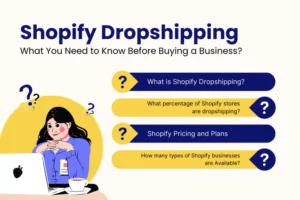 Shopify Dropshipping: What You Need to Know Before Buying a Business?
Shopify Dropshipping: What You Need to Know Before Buying a Business?  How to Dropship on Shopify: Step-by-Step Guide
How to Dropship on Shopify: Step-by-Step Guide  Guide to Finding Reliable Shopify Dropshipping Suppliers [100% Success]
Guide to Finding Reliable Shopify Dropshipping Suppliers [100% Success]